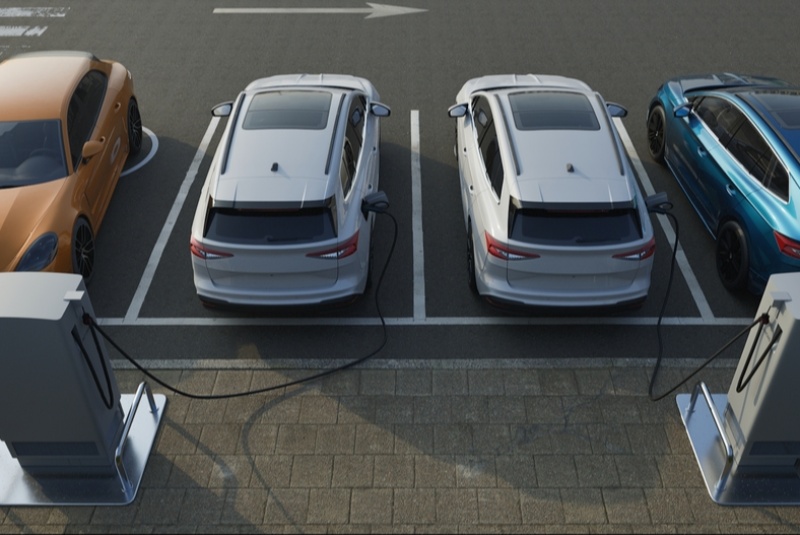Electric vehicles (EVs) are gaining popularity due to their numerous benefits, including lower emissions, reduced fuel costs, and improved energy efficiency. By choosing an EV, you contribute to a cleaner environment, as these vehicles produce no tailpipe emissions, helping reduce air pollution. EVs also offer financial advantages, with lower operating costs compared to gasoline-powered cars, as electricity is generally cheaper than fuel. Additionally, many governments offer tax incentives and rebates for purchasing electric vehicles, making them an attractive choice for eco-conscious consumers. Understanding these benefits can help you make an informed decision when considering an electric vehicle for your next car purchase.
Types of Electric Vehicles: BEV vs. PHEV
When shopping for an electric vehicle, it's important to understand the different types available. Battery Electric Vehicles (BEVs) are fully electric, relying solely on electric power and requiring charging from an external source. BEVs have no gasoline engine, meaning zero emissions and a quieter driving experience. Plug-in Hybrid Electric Vehicles (PHEVs), on the other hand, combine an electric motor with a gasoline engine. PHEVs can run on electric power alone for shorter distances, then switch to gasoline for longer trips, offering flexibility. Knowing the differences between BEVs and PHEVs will help you choose the right vehicle for your driving habits and needs.
Understanding Electric Vehicle Range
Range refers to how far an electric vehicle can travel on a single charge, and it's one of the most critical factors to consider when purchasing an EV. Current EVs offer a wide range of distances, from around 100 miles to over 400 miles per charge, depending on the model. Your daily commute, driving habits, and access to charging stations will determine how much range you need. If you primarily drive in the city or have access to frequent charging, a shorter-range EV might be sufficient. However, if you regularly take long trips, a vehicle with a longer range may better suit your needs.
Charging Infrastructure: Home and Public Charging
Before purchasing an electric vehicle, consider your charging options. Home charging is convenient and affordable, with most EV owners installing Level 2 chargers, which offer faster charging than standard household outlets. Public charging stations are also increasingly available, with many apps and maps helping you locate them. Fast-charging stations, known as Level 3 or DC fast chargers, can charge your vehicle much more quickly, making long trips feasible. Understanding where and how you’ll charge your vehicle is crucial to ensuring that you can maintain a fully charged battery for your daily driving needs and road trips.
Battery Life and Longevity
Electric vehicle batteries are designed to last for many years, but it’s essential to understand their lifespan and how it affects the car's performance. Most modern EV batteries are expected to last between 8 and 15 years, depending on usage and driving conditions. Battery degradation, or the gradual loss of capacity over time, is a normal part of EV ownership. Many manufacturers offer warranties that cover battery replacements or repairs for up to 8 years or 100,000 miles. Regular maintenance, avoiding extreme temperatures, and charging habits can all help prolong battery life and ensure your EV remains reliable for years to come.

Cost Considerations: Upfront vs. Long-Term Savings
While electric vehicles may have higher upfront costs compared to traditional gasoline cars, they offer significant long-term savings. EVs have lower operating costs due to reduced maintenance and the lower cost of electricity compared to gasoline. Since EVs have fewer moving parts, such as no transmission or exhaust system, maintenance costs are typically lower. Additionally, many governments offer financial incentives, such as tax credits or rebates, to help offset the initial purchase cost. It’s important to weigh the initial investment against long-term savings to determine the overall cost-effectiveness of an electric vehicle over its lifetime.
Incentives and Rebates for Electric Vehicles
One of the biggest advantages of buying an electric vehicle is the availability of government incentives and rebates. In many regions, buyers can take advantage of federal, state, and local programs that reduce the overall cost of purchasing an EV. In the U.S., for example, federal tax credits for electric vehicles can be as high as $7,500, depending on the model and manufacturer. Some states also offer additional rebates, grants, or exemptions from vehicle taxes. Research the incentives available in your area to maximize your savings and reduce the upfront cost of your EV purchase.
The Importance of Test Driving an Electric Vehicle
Test driving an electric vehicle is an essential part of the buying process. EVs provide a different driving experience compared to gasoline-powered cars, offering instant torque and smooth acceleration. During a test drive, pay attention to the vehicle’s handling, braking, and overall comfort. Take the time to explore how the regenerative braking system works, as it can affect the driving feel. Additionally, familiarize yourself with the infotainment system, which typically includes features like charging station locators and range estimators. A test drive will help you determine if the electric vehicle suits your driving preferences and lifestyle.
Environmental Impact of Electric Vehicles
Electric vehicles are often marketed as environmentally friendly alternatives to gasoline cars, but it’s important to understand their true environmental impact. EVs produce no tailpipe emissions, which helps reduce air pollution, especially in urban areas. However, the production of lithium-ion batteries used in EVs has its own environmental footprint, particularly in terms of mining and energy consumption. That said, studies show that over their lifetime, EVs have a lower carbon footprint compared to traditional cars, especially when charged with renewable energy sources like solar or wind power. Understanding the overall environmental impact of an EV can help you make a more informed choice.
Maintenance and Servicing of Electric Vehicles
One of the major advantages of electric vehicles is the reduced need for maintenance. Since EVs have fewer moving parts than internal combustion engine vehicles, there’s no need for oil changes, transmission repairs, or exhaust system maintenance. However, EVs still require regular servicing, including tire rotations, brake checks, and battery system inspections. It’s essential to find a qualified mechanic or dealership experienced in servicing electric vehicles, as the technology differs from traditional cars. Many manufacturers also offer specific maintenance plans for EVs, making it easier to keep your vehicle running efficiently and safely.
Resale Value and Depreciation
When considering an electric vehicle, it’s important to factor in the resale value and potential depreciation. Like all vehicles, EVs lose value over time, but some models retain their value better than others. Battery degradation and advancements in EV technology can affect resale value, as newer models with longer ranges and improved features enter the market. However, with the growing demand for used EVs and the expansion of the electric vehicle market, resale values have become more stable. Researching the resale trends of the specific model you’re considering can help you estimate its long-term value and make a smarter investment.
Buying an electric vehicle is an exciting step toward a more sustainable and cost-effective mode of transportation. Understanding the different types of EVs, charging infrastructure, battery life, and cost considerations is crucial for making an informed decision. Whether you’re driven by environmental concerns, the desire to reduce fuel costs, or simply love the idea of driving a high-tech vehicle, electric cars offer a range of benefits that traditional vehicles can’t match. By considering your driving habits, budget, and available incentives, you can find the perfect electric vehicle to meet your needs and enjoy a cleaner, more efficient ride.




